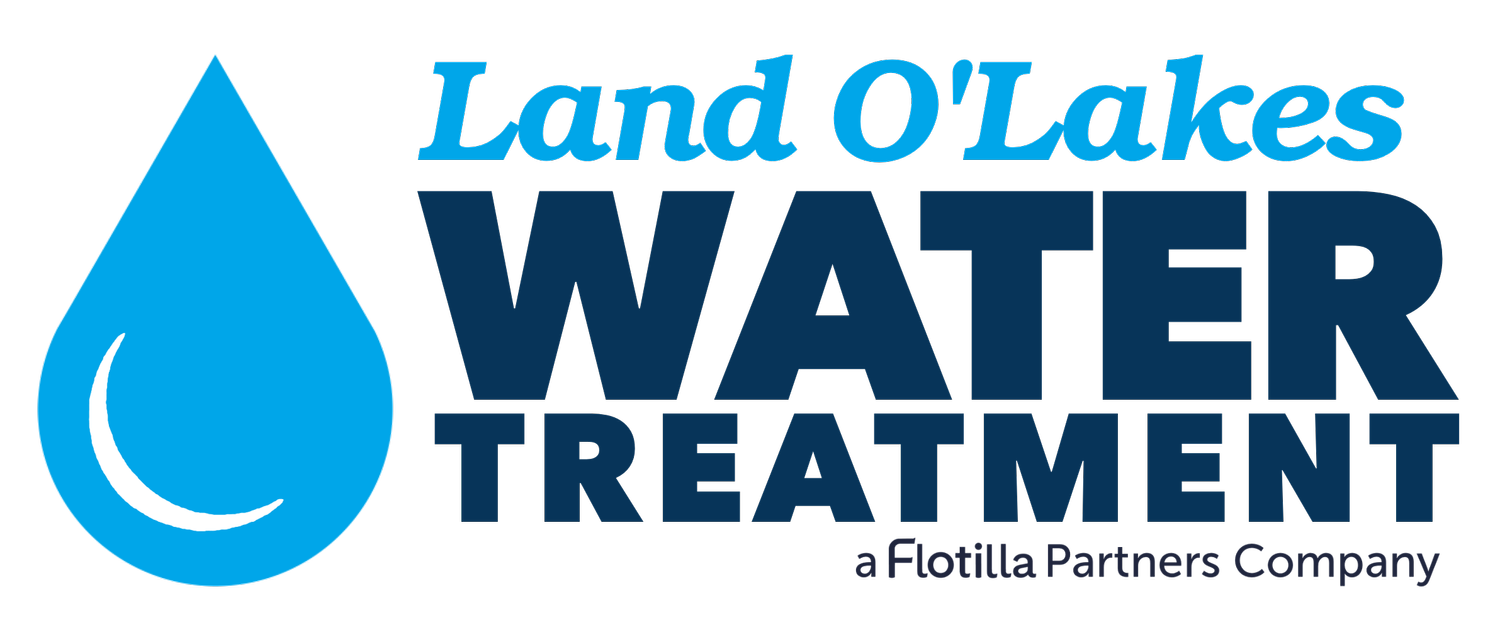Hydrogen Peroxide Well Water Treatment Systems FAQs
Why Choose Peroxide?
Enjoy clean, crystal clear water with a Hydrogen Peroxide Well Water Treatment System! The Land O’Lakes Water Treatment peroxide (“H202”) Well Water Treatment System is a powerful oxidizing agent, even more powerful than aeration, chlorine or potassium permanganate. Hydrogen Peroxide decomposes into oxygen and water leaving no trace of chemical residues. For problem well water containing iron, iron bacteria, manganese and/or “rotten-egg” sulfur odor “H2S” (hydrogen sulfide gas) our Land O’Lakes Water Treatment hydrogen peroxide system is an excellent choice.
When peroxide is added to water a large amount of dissolved oxygen is released and a powerful oxidizing effect occurs. Coliform and iron bacteria are killed, and tannins are oxidized. This type of iron Filter System handles the absolute worst type of water reliably and effectively.
Peroxide oxidizes the iron, manganese and sulfur odors to a solid form that the catalytic carbon can remove. For many applications no contact tank is required, and the hydrogen peroxide is effectively removed by the catalytic carbon media. Hydrogen peroxide holds an advantage over chlorine as a well water disinfectant due to its chemical makeup. It disinfect through oxidation, splitting into oxygen and water. In the case of well water treatment, there is often bacteria that cannot be eliminated by chlorine. According to Essential Water Solutions, “As effective as chlorine is as a disinfecting agent, it’s only marginally effective in reducing the odors from sulfur or reducing iron bacteria, iron or manganese.”
Frequently Asked Questions
How safe is Hydrogen Peroxide in my water?
Very safe – for example: the 3% Hydrogen Peroxide you purchase at the local drugstore will say that it may be used as an oral debriding agent, they instruct you to mix with one part water and rinse or gargle to kill bacteria in your mouth. Bleach is never recommended to be used as a mouthwash in any concentration so why treat your well water with it.
Why not just use Chlorine / Bleach and remove them with Carbon?
This can be done but there are more negatives. Chlorine/Bleach require “contact time” meaning it may require a contact tank which is bulky and unsightly. Hydrogen Peroxide does not require contact time. Chlorine / Bleach leaves solid salt deposits in the injector, eventually causing it to fail. Hydrogen Peroxide produces no solids, only water and oxygen. Chlorine/Bleach also shortens the life of the Carbon Backwashing Filter while Hydrogen Peroxide actually extends the life of the Carbon.
Can Hydrogen Peroxide handle a large volume of iron?
Yes – Hydrogen Peroxide quickly reacts with dissolved iron, changing it from “Ferrous” iron to “Ferric” iron. This means that the iron is converted from “dissolved” to “solid” in a fraction of a second. Once the iron is oxidized and becomes a solid, it is easily filtered. Large volumes of iron require substantial filtration, but good clean iron-free water will be the result.
Why use Hydrogen Peroxide instead of Chlorine or Bleach?
Chlorine/ Bleach (sodium hypochlorite) is a very effective oxidizer. However, it produces a bad taste, smells bad and produces toxic residuals (trihalomenthanes) which are known carcinogens. Hydrogen Peroxide is a clean, environmentally friendly alternative to chlorine/bleach and produces none of these effects.
Will Hydrogen Peroxide harm my septic system?
No – Septic systems rely upon “aerobic bacteria” which thrive in an oxygenated environment. Unlike chlorine/bleach, Hydrogen Peroxide adds oxygen instead of removing it. Hydrogen Peroxide is often manually added to septic systems and waste water systems to minimize odors.

